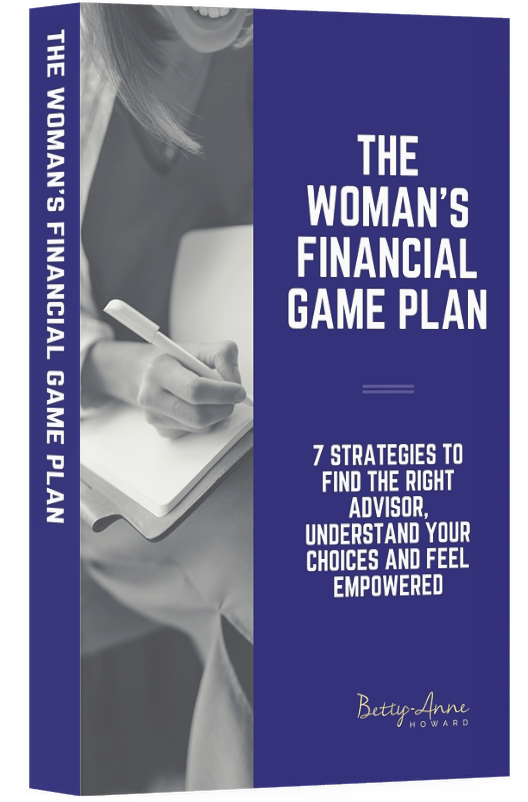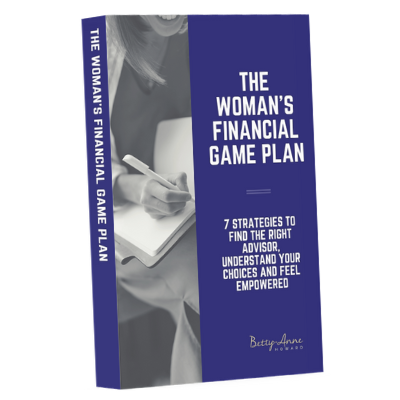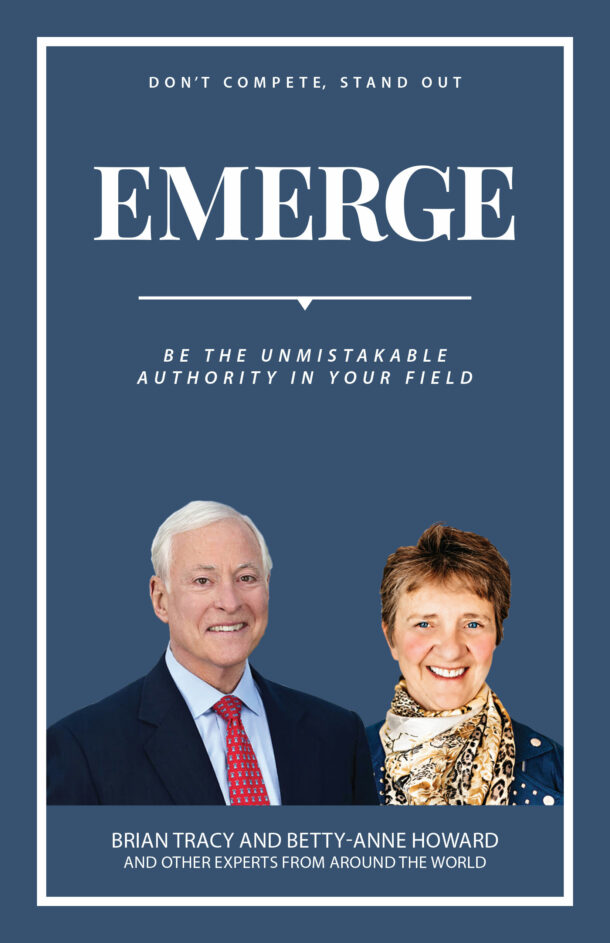
As inheritance planning specialists, we are often gifted with stories of people’s lives. It’s a privilege to have our clients share the stories of their deceased loved ones with us, and we endeavour to be good stewards of their stories.
As Brené Brown states, “honouring the sacred nature of story – the ones we share and the ones we hear [means that] we’ve been entrusted with something valuable that should be treated with respect and care.”
Because of these stories, we know that receiving an inheritance or a gift of money from a loved one when they die can be fraught with many emotions accompanying the intense grief you are experiencing. The desire for that person to be still with you can be palpable.
In addition, receiving an inheritance means you have to decide how best to take care of this money in the way it was intended that also honours the person who gave it to you.
On the giving side of this inheritance coin, many people put a lot of thought into how they want to structure their will to pass on their values and part of their legacy, but we see many mistakes being made when leaving an inheritance as well.
So let’s talk about inheritances and what works and what doesn’t work when leaving or receiving an inheritance.
Receiving an Inheritance – What Doesn’t Work

#1 – Rushing to pay off your mortgage
Most people want to rush in and pay off their mortgage when they receive a significant monetary gift, but not so fast! It’s great that you’re thinking about reducing your debt load, but be cautious. Inheritances are treated as a separate entity from a Family Law point of view, but only if the money is kept separate from your family assets. Co-mingling your inheritance with your family assets – in this case, your matrimonial home will mean that if you decide to end your partnership or marriage, your inheritance is no longer yours alone. Your ex-spouse, who may be the one leaving you, is now entitled to half of that money because you’ve used a portion of it or all of it to pay down your mortgage.
You may ultimately decide to use your inheritance to pay off debt; however, we want you to be fully informed of the consequences when you make that decision.
Some people are okay about using their inheritance that way; for others, not so much. What’s vital is knowing and understanding your options and the pros and cons of each. For example, for some of our clients, rather than paying down a portion of their mortgage instead they invest the money in a separate Tax-Free Savings Account that we’ve earmarked as their inheritance money so they can use the growth on this investment account for home improvements or to pay off a portion of the mortgage while keeping the initial capital amount separate from the family finances.
#2 – Making Decisions About the Money Without Any Thought Given to Who Gave it to You
Before making money decisions, it’s a great idea to have a meaningful conversation with your Estate Planner or Financial Planner that considers the values and legacy of the person who left you the inheritance. Ideas begin to emerge from these conversations that help you be a good steward of your inheritance.
We often ask our clients to tell us more about the person who left them the money. What was important to them, and how do you think they’d like to be remembered? What were your experiences with them, and how would YOU like to remember them?
Some of the themes that come up frequently include how much a deceased parent, grandparent, aunt, or uncle made birthdays special, were charitable, loved to celebrate Christmas, thought that education should always be a high priority, or made leisure time and travel fun.
Armed with this knowledge, there are many options we can suggest that celebrate your loved ones’ life. For example, we’ve helped our clients to:
- Purchase a birthday annuity whereby you receive a birthday gift, a cheque in the mail, from your deceased loved one every year.
- Donate in their honour to their favorite charity or invest the money while using the growth on that money to pay the premiums for a charitable giving life insurance policy to magnify their gift.
- Set up an investment account to make annual contributions to their Registered Education Savings Plan
- Take a trip (when we can finally travel) to a destination that holds some meaning for the deceased relative. For me, my ancestors are from Ireland, and my mother always wanted to go there so, when we are finally able to travel, that’s where I’m headed, in her memory.
#3 – Not Considering Your Overall Financial Life Plan
The notion has been perpetuated within financial services that Financial Planning is only about investing and nothing else. Many of our newer clients tell us their Investment Advisor previously told them, “I only deal with your investments,” so they were not able to ask questions about how an inheritance might fit into their whole life picture.
Instead, we believe in Holistic Financial Life Planning, a reciprocal relationship between your investments and your lifestyle, your life choices, and of course, your inheritance. All pieces and parts of the puzzle need to come together as a whole, creating a picture of what your life looks like now and in the future. Understanding that things can change over time is why the foundational piece of your plan is so critical.
Incorporating your inheritance into your overall financial life plan is critically important. This is what gives us hope – setting realistic goals in our life, figuring out how to achieve these goals, and believing that we can achieve our dreams!
In the end, this is a beautiful antidote to grieving the loss of our loved one. When we can convey the stories of our loved ones based on the decisions we’ve made with the money passed on to us, we celebrate their life and memory in a way that helps us understand and make sense of our loss.
Receiving an Inheritance – What Works

It only stands to reason that what works when receiving an inheritance is the opposite of what we’ve said so far about what doesn’t work.
Take the time and space you need to have those meaningful conversations with your own family and your Estate Planner or Financial Planner. Discuss what the inheritance means to you, who that person was in your life, your relationship with them, what was important to them, and how you would like to remember them with this gift.
Closely examine your options and the pros and cons of each possibility so you can make an informed decision on how best to allocate these funds based on your desires, feelings, needs, and overall financial goals.
We’ve seen and experienced this alternate approach work repeatedly and successfully for our clients.
Giving an Inheritance – What doesn’t work

We’ve talked about receiving an inheritance, but what if you’re on the other side of the coin and are thinking about leaving an inheritance for your family and loved ones. What works or doesn’t work well in that situation?
I remember a few years ago when I was explaining our inheritance planning process to a very successful Estate Planning lawyer in Ottawa, and she said, about drafting wills for her clients; “this would be an ideal process to share with our clients so they could feel more comfortable when leaving money to their heirs.”
I hadn’t thought about reverse engineering our process, yet it made so much sense. Wouldn’t you like to know that in leaving an inheritance to your adult children, grandchildren, nieces, nephews, or your heirs, that they will go through a process to instill some meaning behind the money you’ve left to them?
The lawyer went on to say that asking your heirs to go through this inheritance planning process could be a condition in the will of leaving a gift and if not, no money would go to them and would go to a charity instead. Something to think about!
Common misconceptions about leaving an inheritance

Some common ideas come up when we discuss leaving an inheritance with our clients – can you relate to any of them?
#1 – I’ll just leave it all up to my kids! I’ll be dead anyway, so why should I care?
This mindset doesn’t work because by leaving it up to your kids you’ve given up the opportunity to actually leave even more to them because you’ll be making Canada Revenue Agency (CRA) an unintended beneficiary of your estate. So you should care, if for no other reason than you can make decisions now to leave money to a charity or charities via your will, which will leave more to your heirs or family and make a significant impact on your community and ultimately your family’s legacy.
#2 – I’ll do everything I can to bypass probate which means naming beneficiaries for my registered account (RRSP/RRIF).
Whoever started this campaign to have people think that avoiding probate fees is always the best thing to do has done a great job because we encounter this mindset all the time. However, depending on your situation, the problem with this way of thinking is that taking this approach can create big headaches and even bigger issues when you die.
Let’s say, for example, you leave your $500,000 RRIF to your one daughter Mary, your $500,000 home to your other daughter Petra and leave your $500,000 cottage to your son Paul. First of all, you will have to leave your home and your cottage through your will as it’s only the RRIF that can go directly to your lucky daughter Mary. Your estate will owe about $250,000 in income taxes, which will have to be accounted for. Still, your daughter Mary will already have her money/proceeds because that investment account went directly to her since you named her the beneficiary.
Now your estate needs to come up with the $250,000 for income taxes along with the taxes owing on the cottage, and voila, the fights begin. Perhaps Paul’s cottage value has reduced due to the income taxes owing on it, or Petra can argue she gets the house and since taxes will not be owed on it, why should she pay, and around and around the merry-go-round we go. Especially if Petra or Paul feel one of them has received preferential treatment from their parents throughout their lives.
Believe me; it can get very complicated and messy with estates dwindling down to nothing because of the legal wrangling in court. Meanwhile, Mary is enjoying her money while everyone else dukes it out. Not good for family harmony, and it can and should be avoided.
#3 – Avoiding the Subject Altogether!
There are many good reasons why most of us prefer to avoid the topic of our eventual and inevitable deaths altogether. We don’t like to think about our mortality. However, I believe if we had a way to make the process simple, clear and meaningful, perhaps we’d be more inclined to engage in thinking about and writing down our intentions for what we’ve worked hard for all of our lives.
There’s a plethora of options and ways to structure the giving of inheritances to our heirs, families, and favorite charities available to us all; you just have to find people with the expertise to share these options with you.
Unfortunately, the financial services industry often uses inaccessible and unapproachable language that inhibits many people from taking action. And it’s not just us, lawyers are even worse at this, turning this very important and valuable experience into an onerous and expensive endeavour. This leaves most of us with a lot of trepidation and hesitation to take these steps towards leaving meaningful gifts and inheritances for others.
Having said that, there are others of us working in these fields who want to make this process relevant, meaningful, and accessible to you. We hope that moving towards clear, unambiguous language and concepts and the sharing of education, knowledge, and ideas can break down some of these avoidant behaviours.
Summing It Up

Brené Brown suggests that joy comes from our connection with others, and happiness is a stable, longer-lasting feeling that comes from effort. “With happiness, we feel a sense of being in control.”
As far as we’re concerned, there’s no better place to exercise our control over our own lives than through how we both give and receive money, which also applies to giving and receiving inheritances.
Ultimately I believe that engaging in both sides of this coin, the giving, and receiving of an inheritance can bring us feelings of happiness and joy. After all, the more thought we give to both giving and receiving an inheritance, the better equipped we are to steward this money for future generations.
I want to acknowledge and thank all of our clients who have shared their grief and stories of their deceased loved ones with us. Our work is to use these stories to uplift and help others to experience a positive and rewarding inheritance process, whether that’s in the giving or in the receiving.
Enjoyed this article? You might also enjoy:
Wealth Reimagined: A Winter Solstice Contemplation
How To Magnify Your Charitable Gift Giving
Donating To Charity In Your Will: 5 Ways To Change Your World And Make A Difference






0 Comments